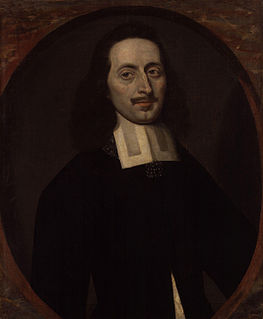A Quote by Dean Koontz
Pain is a gift. Humanity, without pain, would know neither fear nor pity. Without fear, there could be no humility, and every man would be a monster. The recognition of pain and fear in others give rise in us to pity, and in our pity is our humanity, our redemption.
Related Quotes
[The artist] speaks to our capacity for delight and wonder, to the sense of mystery surrounding our lives; to our sense of pity, and beauty, and pain; to the latent feeling of fellowship with all creation--and to the subtle but invincible conviction of solidarity in dreams, in joy, in sorrow, in aspirations, in illusions, in hope, in fear?which binds together all humanity--the dead to the living and the living to the unborn.
When your fear touches someone's pain it becomes pity;
when your love touches someone's pain, it becomes
compassion. To train in compassion, then, is to know
all beings are the same and suffer in similar ways,
to honor all those who suffer, and to know you are
neither separate from nor superior to anyone.
Pity is for this life, pity is the worm inside the meat, pity is the meat, pity is the shaking pencil, pity is the shaking voice-- not enough money, not enough love--pity for all of us--it is our grace, walking down the ramp or on the moving sidewalk, sitting in a chair, reading the paper, pity, turning a leaf to the light, arranging a thorn.
There is no hate without fear. Hate is crystallized fear, fear's dividend, fear objectivized. We hate what we fear and so where hate is, fear is lurking. Thus we hate what threatens our person, our liberty, our privacy, our income, our popularity, our vanity and our dreams and plans for ourselves. If we can isolate this element in what we hate we may be able to cease from hating... Hate is the consequence of fear; we fear something before we hate; a child who fears noises becomes the man who hates them.
To remain stable is to refrain from trying to separate yourself from a pain because you know that you cannot. Running away from fear is fear, fighting pain is pain, trying to be brave is being scared. If the mind is in pain, the mind is pain. The thinker has no other form than his thought. There is no escape.
The artist appeals to that part of our being which is not dependent on wisdom; to that in us which is a gift and not an acquisition-and therefore, more permanently enduring. He speaks to our capacity for delight and wonder, to the sense of mystery surrounding our lives; to our sense of pity, and beauty and pain.
It would be more in keeping with the intention of the noblest man in this world if our two Christian churches, instead of annoying Negroes with missions which they neither desire nor understand, would kindly, but in all seriousness, teach our European humanity that where parents are not healthy it is a deed pleasing to God to take pity on a poor little healthy orphan child and give him father and mother, than themselves to give birth to a sick child who will only bring unhappiness and suffering on himself and the rest of the world.
Compassion arises naturally as the quivering of the heart in the face of pain, ours and another's. True compassion is not limited by the separateness of pity, nor by the fear of being overwhelmed. When we come to rest in the great heart of compassion, we discover a capacity to bear witness to, suffer with, and hold dear with our own vulnerable heart the sorrows and beauties of the world.































